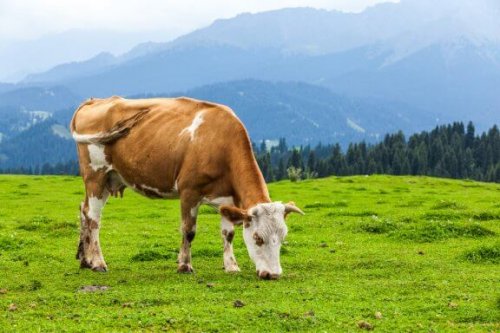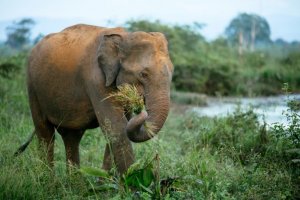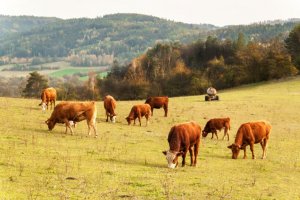The Importance of Herbivores

We often hear about how important carnivores are in the world’s different ecosystems, mainly because of how they balance nature’s food chain. However, an experiment carried out in the Alps shows the vital importance of herbivores too.
The study was conducted by the Federal Institute of Swiss Research. It demonstrated the importance of herbivores, by selectively excluding some of these animals from their ecosystems. They published the study, which is based around fencing certain animals in to exclude them, in the journal Nature Communications.
These enclosures were used to exclude different animals from the pasture. They used different sized fences to show the importance of herbivores of any species. Some allowed small mammals like rabbits through, while others didn’t even let snails in.
The importance of herbivores: what happens without them?
The researchers saw that when they removed large mammals, then other plant species predominate. This could have an enormous consequence on all the species in the whole ecosystem.
The researchers, in another part of the research, excluded all animals. This resulted in an even worse relationship between the plants, bacteria and other components of the ecosystems.

This means the ecosystem can’t work as well. Unless there are interactions between all the different living species, then there’s less stability, fewer nutrients, less energy and mineral movements, and fewer plant species.
Researchers have seen that invertebrates also play a very special role in each ecosystem. This is something that hasn’t been taken into account in many studies about large ungulates, like deer.
What worries researchers now is the fact that invertebrate populations are decreasing across Europe. They’re concerned about how this will affect their ecosystems.
These disappearances are happening in protected areas. Because of this, researchers are urging people to protect invertebrates to help defend biodiversity.
Fertilizers and grazing
This isn’t the first study to show the importance of herbivores in ecosystems. In 2014, a study compared grasslands around the world. It found that when some invertebrate populations were being affected by fertilizers in their ecosystems, then herbivorous grazing animals were able to regulate it.
When the scientists limited the access of the herbivores, then the pastures regulated by antelopes, cows or deer have greater biodiversity than those with an excess of nutrients from fertilizers.
This is because grazing animals keep some plants from growing too much. This stops them from blocking other plants from getting sunlight, which also decreases their nutrient intake. Also, many plants require very few nutrients, so an excess from fertilizers makes them compete with each other more.

In this case, they also included domestic herbivores. This reminds us of the importance of extensive agriculture or techniques like transhumance (a type of nomadism) when species are in danger of extinction.
This is because plants that are domesticated by man tend to have higher nutrient requirements, but they also produce larger fruits. However, many wild plants that are necessary to maintain vertebrate population don’t grow if they have to compete with those plants.
Of course, large carnivores like wolves play a vital role in ecosystems. But you have to remember that all animals have an important role in nature, and that’s why it’s imperative that we protect them.
All cited sources were thoroughly reviewed by our team to ensure their quality, reliability, currency, and validity. The bibliography of this article was considered reliable and of academic or scientific accuracy.
A.C. Risch, R. Ochoa-Hueso, W.H. van der Putten, J.K. Bump, M.D. Busse, B. Frey D.J. Gwiazdowicz, D.S. Page-Dumroese, M.L. Vandegehuchte, S. Zimmermann & M. Schütz “Size-dependent loss of aboveground animals differentially affects grassland ecosystem coupling and functions”. Nature Communications DOI: 10.1038/s41467-018-06105-4.
